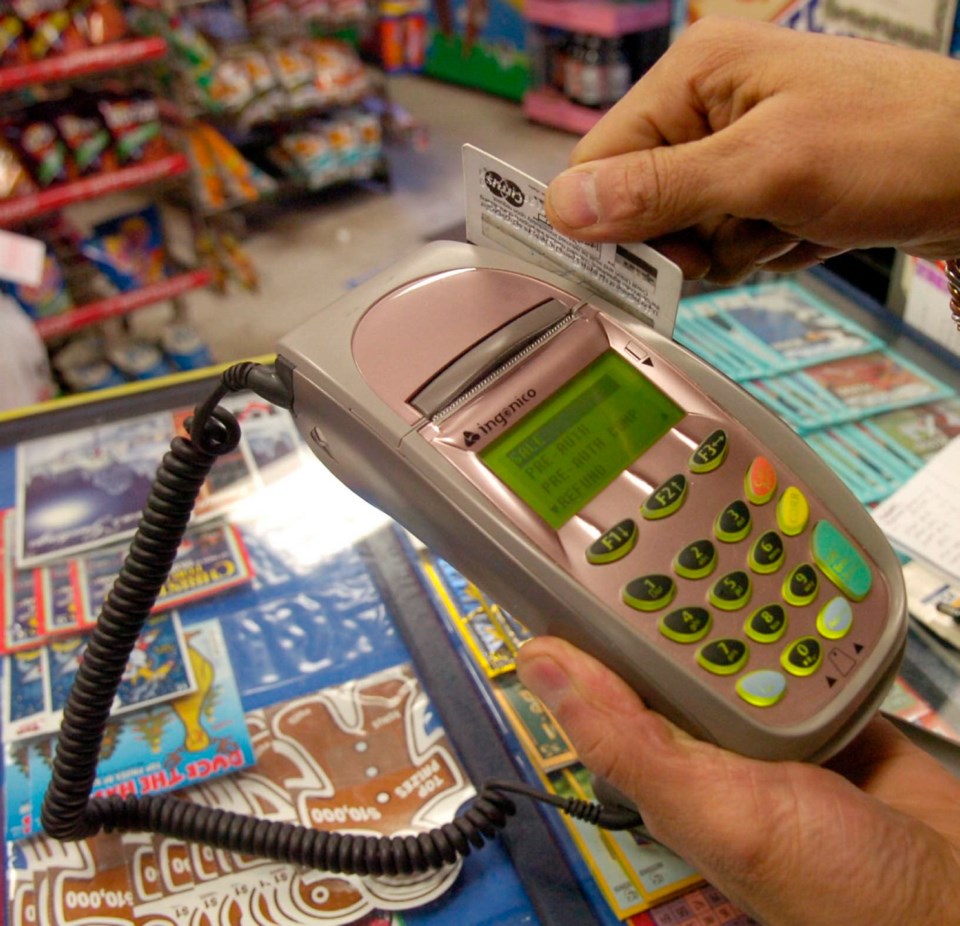A suspected “skimming” operation at a point-of-sale terminal in Victoria may have affected thousands of consumers and has financial institutions and the Victoria Police Department reminding people not to swipe their debit cards.
“Use the chip — there’s a reason we’ve gone to the chip,” said Sheira Hallam, head of communications for Coast Capital Credit Union, which has contacted 950 clients who may have been affected. Chip technology combined with typing in a personal identification number significantly reduces the chances of a debit card being compromised.
A skimming operation involves counterfeiting debit cards using information obtained through a card reader illicitly installed on an automated bank machine or through a tampered point-of-sale terminal.
No one is saying where the questionable point-of-sale terminal was located.
Coast Capital said the skimming is only suspected at this point, but the credit union has advised clients who may have been affected to change their personal identification numbers.
Major financial institutions such as TD Canada Trust, Scotiabank, Royal Bank and Bank of Montreal could not say how many of their clients might be involved.
The Interac Association is investigating in conjunction with financial institutions.
The association oversees the Interac network, which can be accessed through 60,000 automated bank machines and 766,000 point-of-sale terminals.
Hallam said Coast Capital was notified Sunday by Interac that there had been unusual activity at a point-of-sale terminal in Victoria.
Since it’s only a suspected case of skimming, under the credit union’s agreement with Interac, it can’t disclose where the point-of-sale terminal was located, Hallam said. “It would be irresponsible of us to be making accusations when it’s not confirmed,” she said. “The merchants involved are very often a victim of this as well and they lose thousands when this happens.”
While an investigation could take months, Hallam said Coast Capital expects its members will start coming forward to report unusual activity over the next few weeks. At that point, the credit union will go through accounts with members to determine if there were fraudulent transactions.
Caroline Hubberstey, head of external affairs for the Interac Association, said it does not comment on investigations.
But Hubberstey said the association has made “a lot of headway” in reducing fraud, with the help of consumer vigilance, law enforcement and chip technology.
According to the Interac Association, debit-card fraud losses as a result of skimming dropped to $29.5 million in 2013 from a high of $142 million in 2009. Only $7.3 million of those losses in 2013 were the result of fraud within Canada.
Cardholders are protected from losses under Interac policy, which puts the onus on financial institutions to make up the losses.



